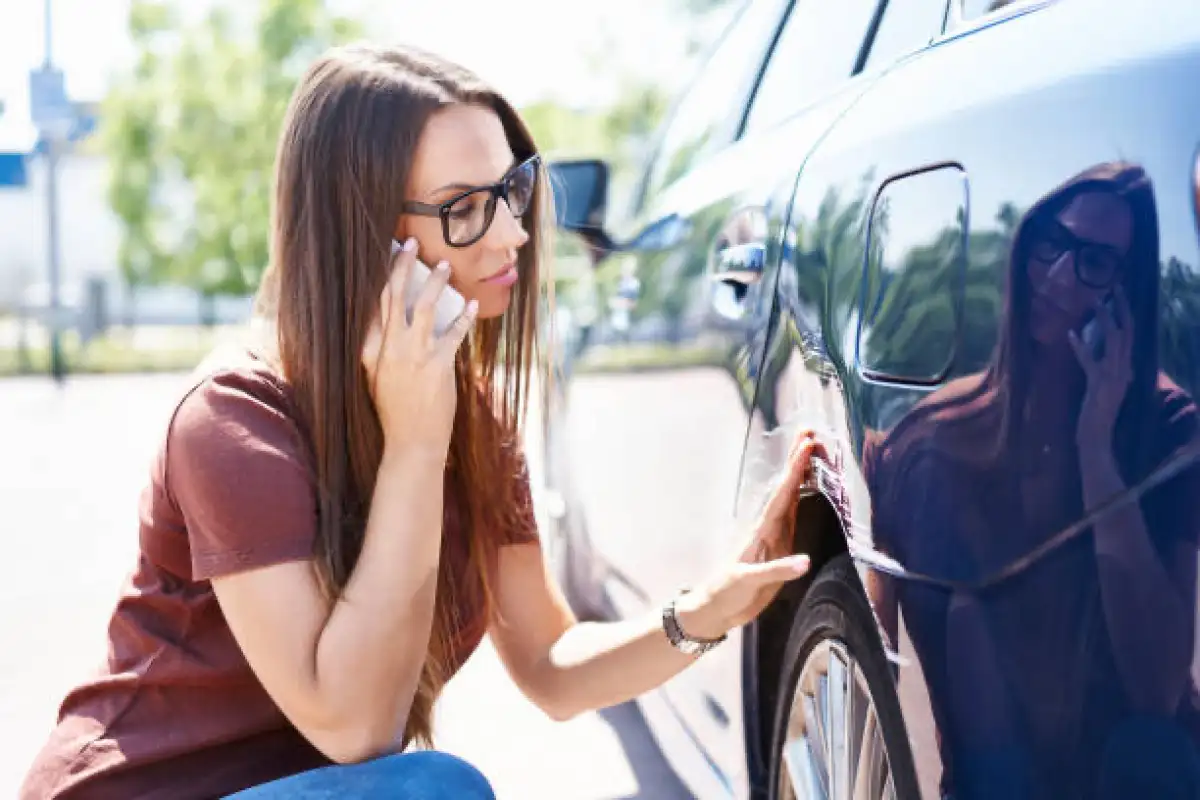Embark on a journey to safeguard your investment with our reliable guide on how to check car accident history in KSA. This 2025 buyer’s guide delivers clear steps and trusted methods so you can inspect your potential car with confidence.
How to Check Accident Records in 3 Simple Steps

Step 1:Use the Absher Platform
Begin by logging into your Absher account—this is your gateway to accessing detailed accident data. Once logged in, navigate to the ‘Vehicle Services’ section and select ‘Traffic Accident Inquiry’, then enter your car's unique 8-digit chassis number found on the registration card. This procedure not only reveals accident dates and locations but also offers critical details on insurance claim statuses, making it a go-to method for an Absher accident check and overall vehicle inspection.
Step 2:Request a Vehicle History Report
To secure a comprehensive vehicle history report in KSA, approach approved services that adhere to GCC certification standards. Visit a Ministry of Interior (MOI) center with your vehicle registration in hand, or consult Saudi Customs for imported vehicles where VIN verification is essential. Many authorized dealerships also provide certified checks that include total loss records and mileage verification, ensuring you receive trusted accident information for your car.
Step 3:Verify Physical Indicators
Complement your digital reports by conducting a thorough physical inspection. Look carefully for uneven paint textures on body panels, misaligned doors or trunk, replacement part stickers in frames, and signs of fresh welding beneath the chassis. These physical indicators serve as practical clues to a car’s accident history, reinforcing the digital data you obtained. Paying attention to such details during your vehicle inspection builds confidence in your purchase decision.
2025 Updates Every Buyer Should Know

The digital landscape for accident history verification is rapidly evolving. New tools, such as the MOI Smart App, now let you scan license plates in real time to fetch accident alerts. Additionally, blockchain records are becoming standard across approximately 42% of dealerships, offering tamper-proof logs, while AI-powered damage analysis is accessible at numerous service centers across the region.
Free Accident Check Methods
For a cost-effective approach, you can use free resources to check your car's accident history. Options include the KSA Vehicle History Platform, which delivers a basic report using your VIN, and the Emirates Vehicle Gate that facilitates cross-border checks with UAE-registered data. Some insurance company portals also provide limited yet useful information, aiding you in completing a well-rounded vehicle inspection.
Why Accident History Matters in 2025

Understanding a car's accident history is crucial in avoiding unexpected risks. Overlooking hidden damages can result in safety system malfunctions, voided warranties on advanced driver assistance systems (ADAS), and up to a 22% increase in maintenance costs. In today’s market, a detailed accident history report supports a transparent buying process, ensuring you make an informed and secure vehicle investment.
Common Verification Mistakes
Avoid common pitfalls by not relying solely on unverified third-party applications. Always confirm the chassis number details and independently inspect for subtle signs like flood damage that might be easily missed. A balanced approach that combines digital verification with a personal vehicle inspection minimizes the risk of future surprises.
FAQ

Q1:How frequently are car accident records updated on government platforms?Government platforms usually update accident records within 24 to 48 hours after an incident is reported. This ensures you have access to the most current safety information for your vehicle. However, if additional investigations are required, there might be slight delays. Always recheck if you suspect any recent changes in the record.
Q2:Can I rely solely on digital accident history reports for my verification?While digital reports provide comprehensive accident details, they are best supported by a personal inspection of the vehicle. A thorough physical check helps to reveal any subtle damages that might not be evident on a screen. Combining digital and physical inspections gives you the most complete picture of a car’s history. Therefore, it’s recommended to use both methods to ensure full accuracy.
Q3:What benefits do vehicle history reports from MOI or authorized dealerships offer?Reports from MOI centers or authorized dealerships are trusted because they include verified data such as mileage verification, total loss records, and detailed accident events. These sources adhere to GCC certification standards, making the information reliable for buyers. They help ensure that you are fully aware of any previous incidents or repairs. This reliability is critical for safely transitioning into a used car ownership experience.
Q4:How long do accident records typically remain accessible on these platforms?Generally, accident records remain available for at least 7 years, providing a long-term history of the vehicle’s condition. This period aligns well with GCC certification standards and aids buyers in making informed decisions. The longevity of these reports ensures that even older incidents are not overlooked during the inspection process. Always consult with service centers for the most precise record retention details.
This guide is for informational purposes only. Please refer to the latest local laws and regulations for up-to-date legal requirements.

Mustafa Karim, having been deeply involved in automotive research and development for over ten years. He is fond of Japanese cars, and their precise and energy-efficient features have influenced him. In his spare time, he loves Japanese anime and kendo, drawing inspiration from them for control system research and development. He also often shares cutting-edge automotive knowledge on platforms, contributing to industry innovation and adding strength to automotive development with his expertise.













